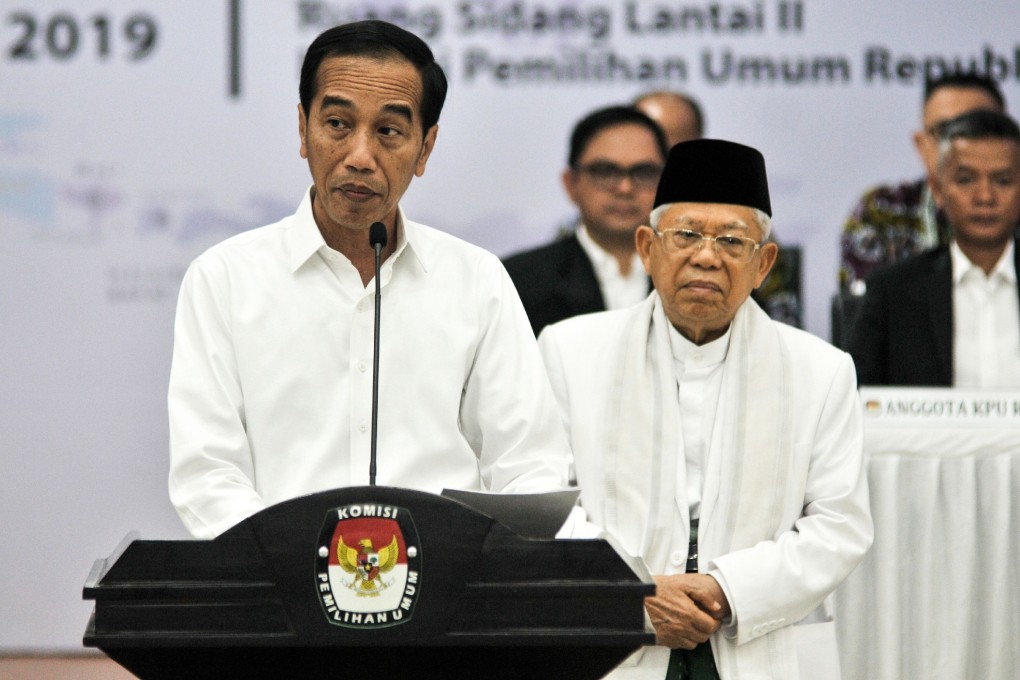Advertisement
Jokowi’s foes now want to be his friends. Will playing nice benefit Indonesia?
- After a divisive election, the country is crying out for new infrastructure, improved labour conditions and a revitalised manufacturing sector
- Co-opting Prabowo Subianto and allies into Joko Widodo’s coalition may help political stability and allow for focus on economic reforms. But there are downsides
Reading Time:4 minutes
Why you can trust SCMP

With President Joko Widodo officially confirmed to have won his second term as Indonesia’s leader, allies of his opponent are looking to switch sides, but analysts are divided on whether a broad ruling coalition will ensure political stability.
Advertisement
Widodo, popularly known as Jokowi, has indicated his willingness to reconcile with his challenger, former general Prabowo Subianto, whose claim of widespread vote rigging in the April 17 election was thrown out by the country’s constitutional court on June 28.
Prabowo has not directly responded to overtures made by Jokowi’s aides. Neither has he conceded defeat although he did say he accepted the court verdict. But by telling supporters not to protest against the court decision, the chairman of the Gerindra party might be signalling that he “has indeed brokered an arrangement of sorts with the administration”, analyst Kevin O’Rourke wrote in the most recent issue of his Reformasi Weekly newsletter.
“Prabowo may be angling for rewards such as public offices for Gerindra figures that would be remunerative for the party,” O’Rourke said, adding Prabowo would need to be cautious to avoid criticism he was betraying his supporters for material gains.
Hardline Islamic groups had thrown their support behind Prabowo and were behind initially peaceful protests against Jokowi’s win in Jakarta on May 21-22 that later degenerated into violent riots leaving nine people dead.
Advertisement

Advertisement